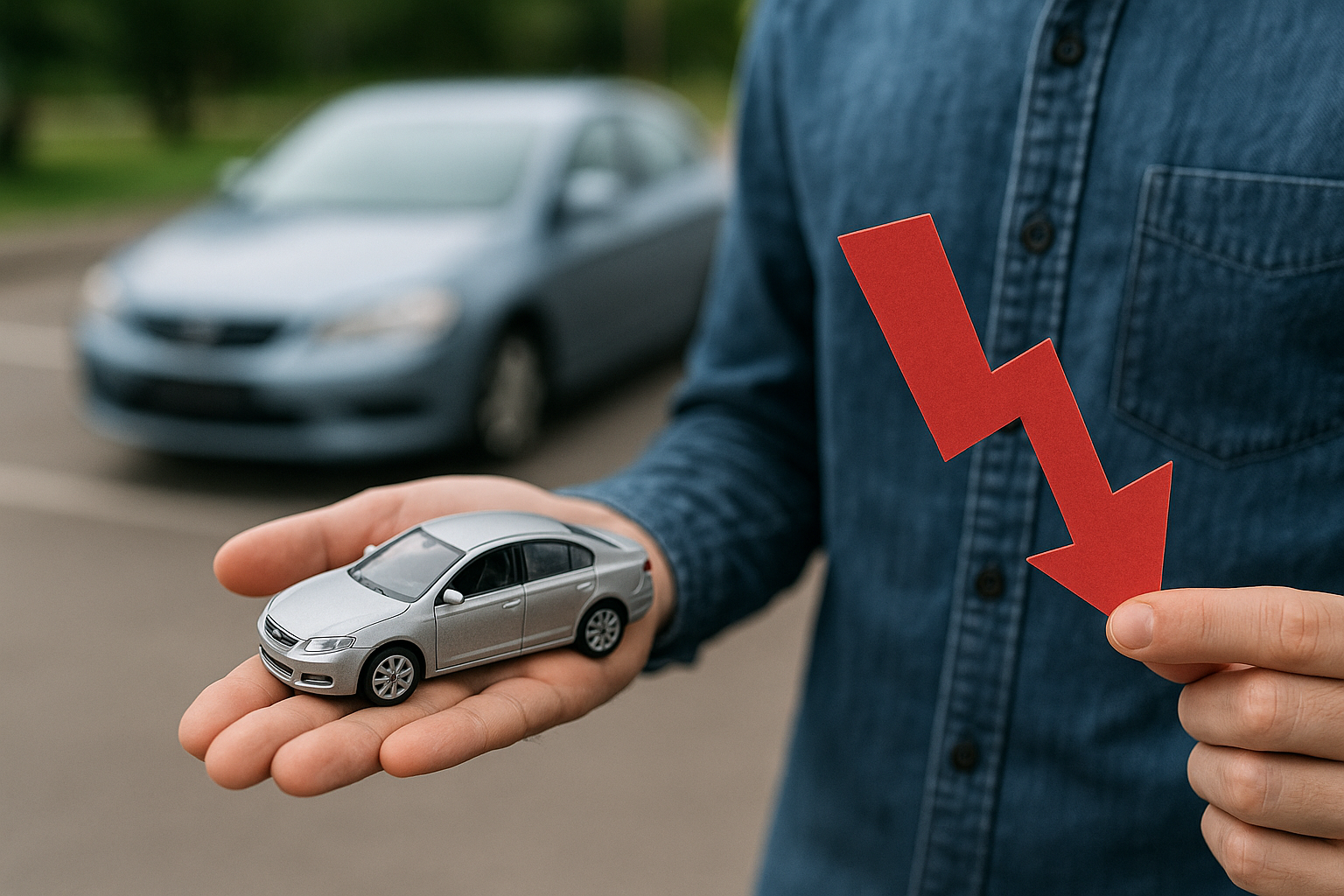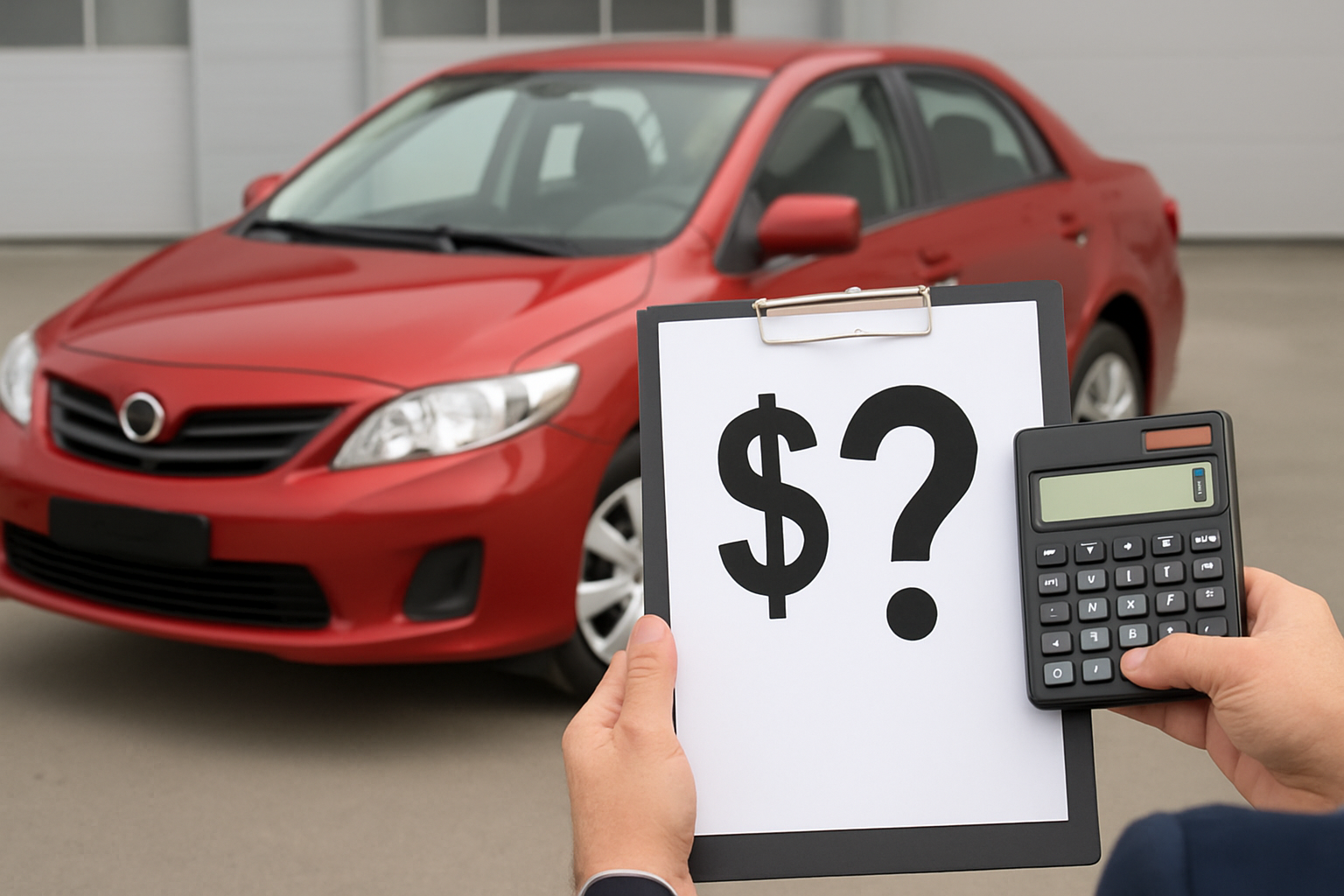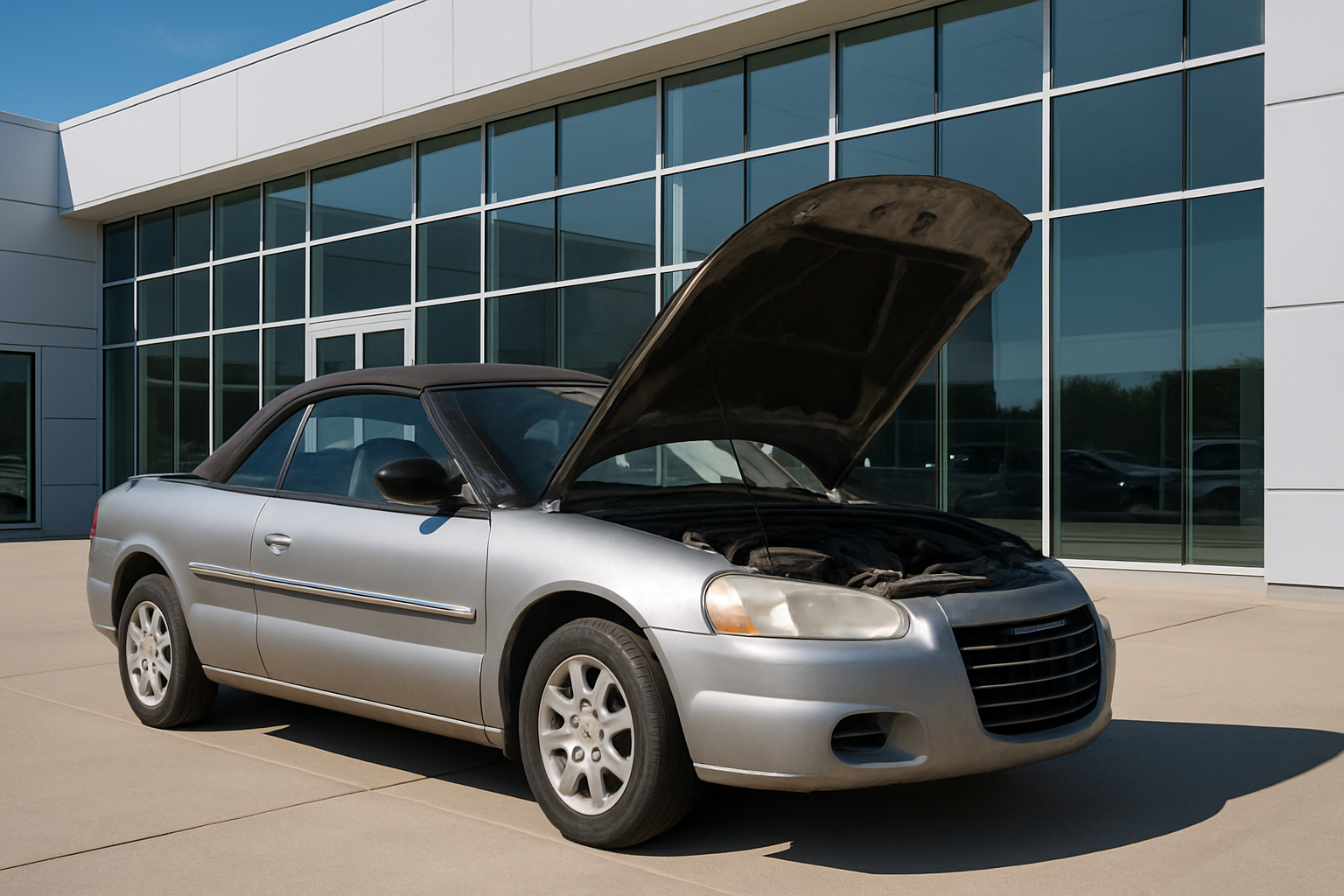Understanding how to sell a salvage car is essential for any vehicle owner looking to navigate this unique market. Salvage vehicles come with their own set of challenges and opportunities. This guide will equip you with the knowledge needed to successfully sell a car with a salvage title, ensuring a straightforward and profitable transaction.
What Is a Salvage Title?
A salvage title is assigned to a vehicle that an insurance company deems a total loss. This could be due to various reasons like accidents, theft, or natural disasters. Such cars are considered beyond repair or would cost more to fix than the car's actual value. A salvage title warns potential buyers about the vehicle's past damages. However, this doesn't always mean the car is unusable. Some salvage title vehicles can be repaired and, if they only suffered minor damage, can be a good investment. Diligent buyers should review vehicle details thoroughly, assessing if the used car is worth buying and if the cost aligns with its condition. Despite the risks, with the right repairs, these cars can offer significant savings and value for money.
How Cars Become Salvaged

Vehicles receive salvage titles after suffering significant damage. The cost to repair the vehicle exceeds a certain percentage of its pre-damage value, prompting the insurance company to declare it a total loss. Factors leading to this status include major collisions, flood damage, or theft recovery, where the vehicle was missing long enough to be considered a loss. Once branded, these motor vehicles are often seen as less desirable compared to other used vehicles with clean titles. The vehicle title is then marked with a salvage certificate, distinguishing it from conventional car titles. This change significantly impacts the vehicle’s market value and potential use, turning some into what is essentially considered a junk car.
The Issues with Owning A Salvage Title Vehicle
Owning a salvage title vehicle comes with complications. Insuring such cars can be difficult and expensive, as many insurance companies are hesitant to provide full coverage. Additionally, the resale value drops significantly due to the salvage title, making it a less appealing option for potential buyers. Those looking to buy salvage vehicles must have the know-how to assess their condition accurately. Unlike other used vehicles, salvage cars often carry a dismantled title, indicating they were damaged severely. Repairing such a damaged car can be costly and complicated, making it hard to find a good deal. Moreover, the process of converting a salvage title back to a standard one is complex and varies by state, adding to the owner's challenges.
Salvage Title vs. Rebuilt Title

It's crucial to distinguish between a salvage title and a rebuilt title. A salvage title marks a vehicle as damaged and not legally driven on public roads. A rebuilt title is given once the car is repaired and passes state inspections, indicating it's safe to drive again. However, the history remains, affecting the car's value and desirability. In the best-case scenario, a salvaged vehicle that has been repaired and inspected can be sold as a safer and more reliable option than other used vehicles without clear histories. However, even a rebuilt title doesn't erase the fact that the car was once damaged or stolen, making it less valuable than a similar car with a clean title. For buyers, understanding the distinction and the vehicle's past is critical before making a purchase.
Can Salvaged Cars Be Sold?
Selling salvage title cars is permissible. However, transparency is key. Sellers must inform potential buyers about the car's salvage status. While this may reduce the pool of interested parties, there is still a market for these vehicles, especially among private buyers or those interested in spare parts. Comparatively, a salvage car can often be a more affordable option than other used vehicles, making it an appealing choice for those who know how to repair or utilize them effectively. Despite the challenges, a car with a salvage title can still hold value, especially when sold to those who salvage or rebuild cars. It's essential to include all relevant information on car titles when selling, ensuring that the new owner is fully aware of the vehicle's history and status.
Effective Strategies When Selling a Salvage Title Vehicle
When selling salvage title cars, honesty is the best policy. Provide a detailed vehicle history report to prospective buyers to show the extent of damage and repairs. Setting a realistic price, reflecting the car's salvage status but also its functionality post-repair, can attract serious buyers. Also, consider selling the car online, where you can reach a niche market specifically interested in salvage vehicles. Marketing is another crucial aspect; highlight the positives of your car, such as recent repairs or replacement parts, without obscuring its history. Engage with communities or forums dedicated to salvaged vehicles or specific car models. This approach helps find informed buyers, reducing potential issues post-sale. Remember, patience and clear communication are key in facilitating a fair deal for both parties involved.
Other Ways of Getting Rid of a Salvage Car
If selling proves difficult, there are other avenues. You could sell the car as scrap metal or dismantle it and sell the parts. Some companies specialize in buying salvage cars, offering cash deals that save you the hassle of looking for private buyers. Auctions are another viable option, where the salvage car title can be disclosed upfront, and buyers can bid based on the vehicle's condition. Additionally, converting the vehicle to a junk title can simplify transactions, making it easier to sell the car for parts or scrap. Always ensure the buyer is aware of the car's status, whether it holds a salvage car title, clear title, or junk title. This transparency can affect the price, but it ensures legality and fairness in the deal, giving peace of mind to both seller and buyer. Remember, the goal is to receive fair cash payment while providing the buyer with clear information on what they pay for.

Donating your salvage car to a charity is another method to consider if direct selling isn't working. Many charitable organizations accept cars regardless of their condition, potentially offering a tax deduction for your donation. This can be particularly appealing if the vehicle is not selling due to its salvage status and you're looking to move on without further investment. Ensure that the charity is legitimate and that they are prepared to handle cars with a salvage title. They will typically handle the paperwork and towing, further simplifying the process for you. While this option might not bring direct cash payment, it provides a hassle-free way to dispose of your salvage vehicle while benefiting a good cause and potentially reducing your tax burden. Always consult with a tax professional to understand the benefits specific to your situation.
Summary
Selling a salvage car requires transparency, realistic pricing, and an understanding of the market. While there are challenges, knowing how to navigate them ensures you can sell your salvage vehicle effectively and legally. Emphasizing honesty and full disclosure will build trust with potential buyers and help avoid legal issues. Additionally, doing your research to set a competitive price can make your salvage car more attractive to buyers. Understanding the specific demands of the salvage market, such as the need for spare parts or rebuildable cars, can also improve your chances of a successful sale. Ultimately, the key to selling a salvage car lies in clear communication, a fair deal, and patience throughout the selling process.
Tips and Q&A
-
Why Do Insurance Companies Deduct Salvage Value?
Insurance companies deduct salvage value because they can sell the damaged vehicle to recoup some of their losses. This value is deducted from the payout to the owner following a total loss claim.
-
Is It Illegal to Sell a Salvage Car Without Telling a Buyer?
Yes, it's illegal to sell a salvage vehicle without disclosing its status. Transparency regarding the vehicle's past is crucial to ensure fairness and legality in the transaction.
-
Can You Drive a Salvage Title Car in Other States?
A car with a salvage title cannot be legally driven on public roads in most states. However, if the car is repaired and passes inspection, it can be issued a rebuilt title, allowing it to be driven legally. The rules regarding this process can vary by state.






